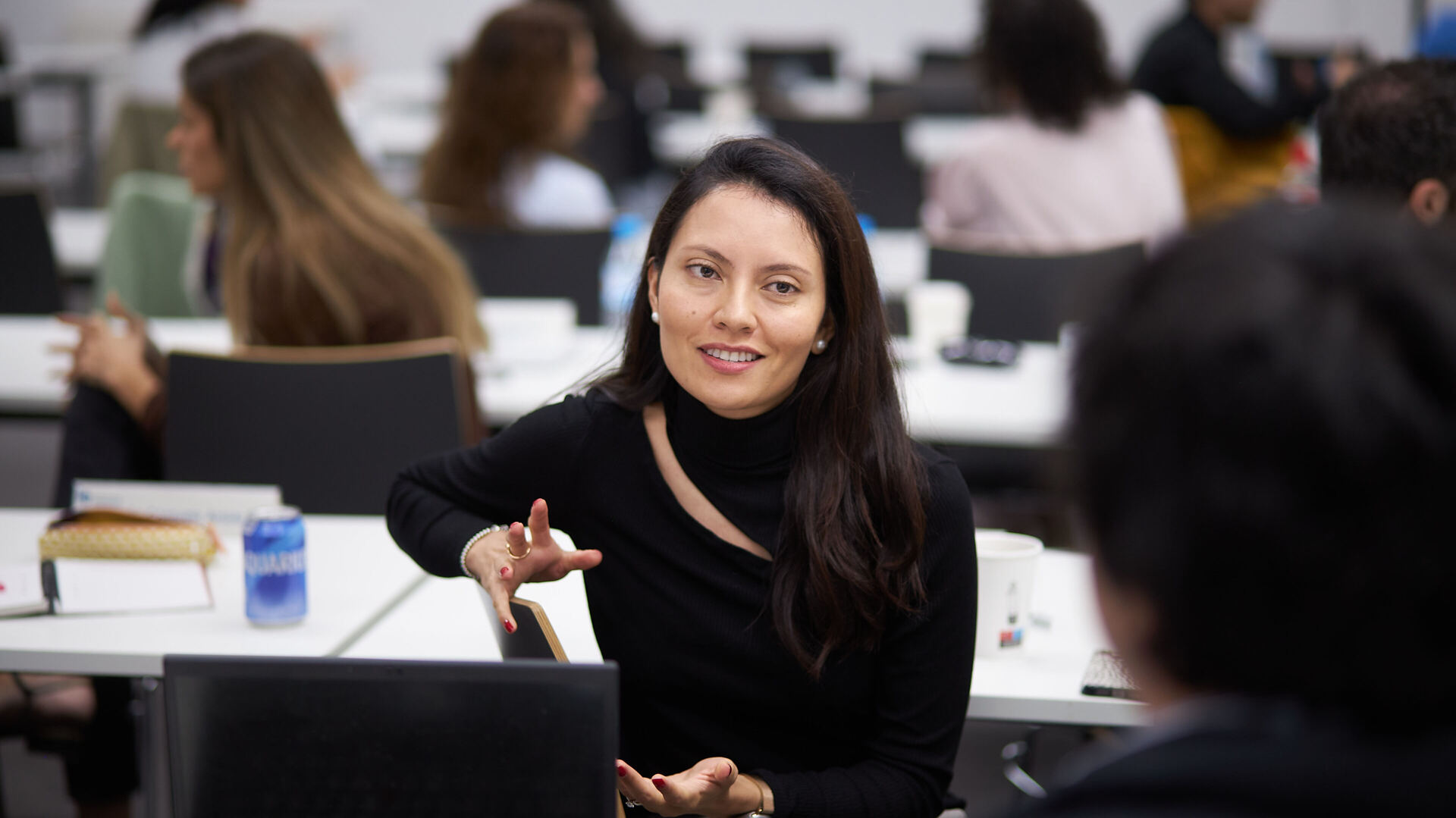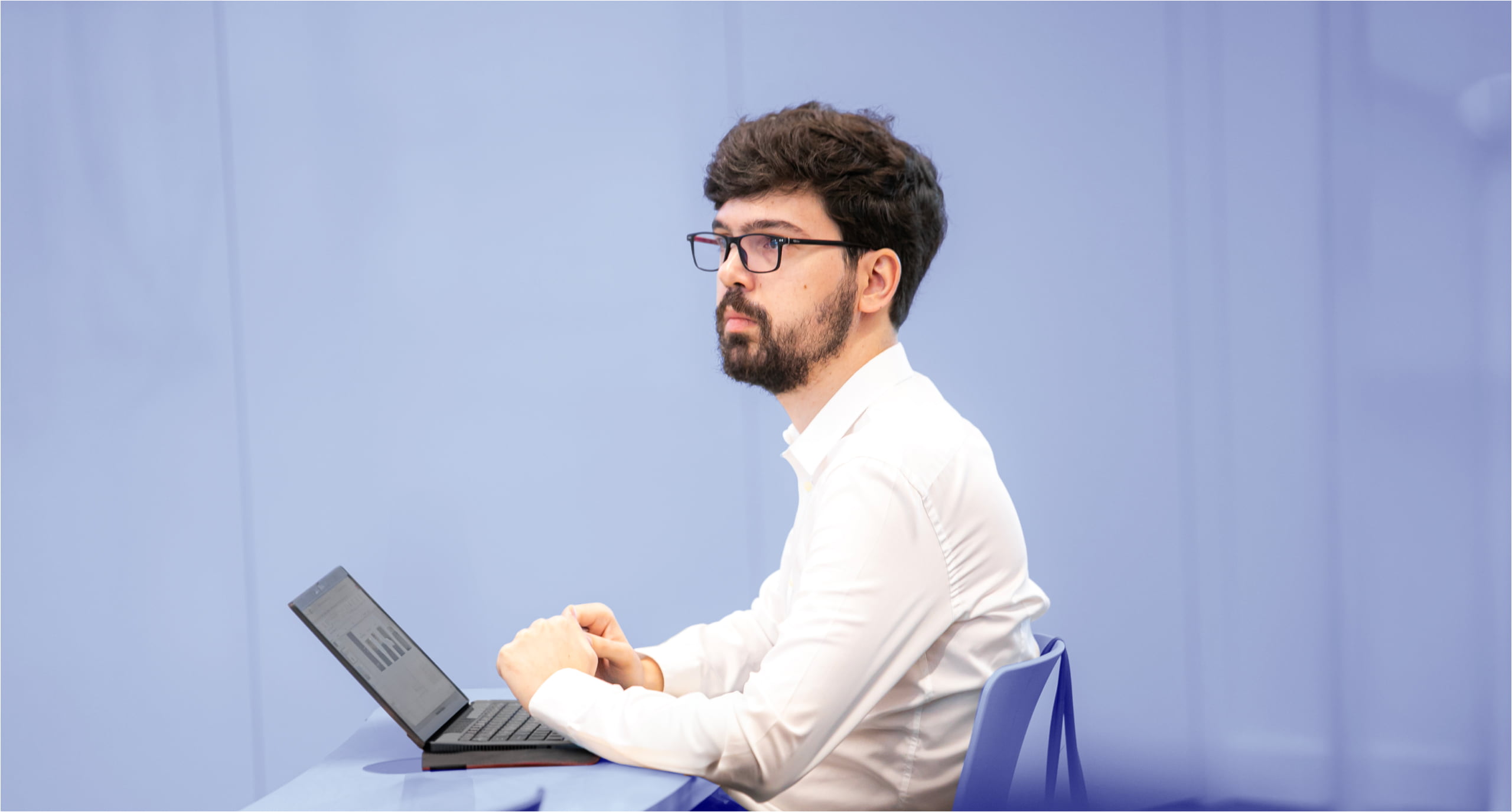20/07/2023
IE University has long been a pioneer in implementing state-of-the-art technology in educational settings. As the metaverse continues to prove its worth in a wide range of sectors, the university is once again at the forefront, harnessing its power to provide students with immersive experiences both inside and outside the classroom.
Through the use of extended reality (XR), an emerging interface that acts as a bridge between virtual reality (VR), mixed reality (MR), augmented reality (AR) and the physical world, students at IE University are being introduced to the metaverse.
Simulating real-world scenarios enhances the learning of new skills and knowledge acquisition by offering virtual, digital exposure to the environments being studied.
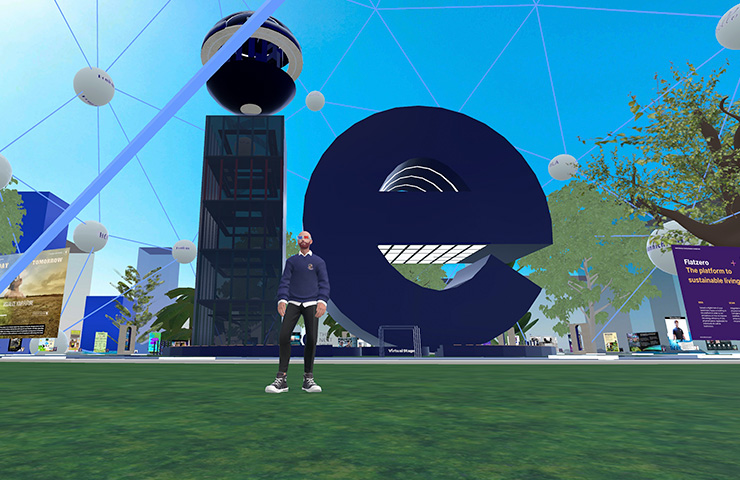
It’s not just science and technology students benefiting from this innovative approach either—these immersive experiences are being applied across programs ranging from law to social sciences.
The IE UN Challenge
This year, Sebastien Veldman—adjunct professor specializing in the metaverse and AR—has headed a new cross-disciplinary project called the IE UN Challenge. He describes it as an individual insight assignment linked to the United Nations’ Sustainable Development Goals (SDGs). In this project, students were given the task of investigating the goals and picking one to focus on. They then had to devise creative methods of applying technologies such as AR, VR and MR in order to contribute to achieving the UN objectives.
With over 50 students getting involved, Sebastien Veldam was hugely impressed by the variety of original ideas put forward. Each initiative was exhibited on Spatial, a metaverse platform that made them freely available in a 3D virtual gallery environment. The inauguration was a huge success, as attendees enjoyed passing through the virtual exhibition to gain a deeper understanding of the students’ thoughts and ideas.
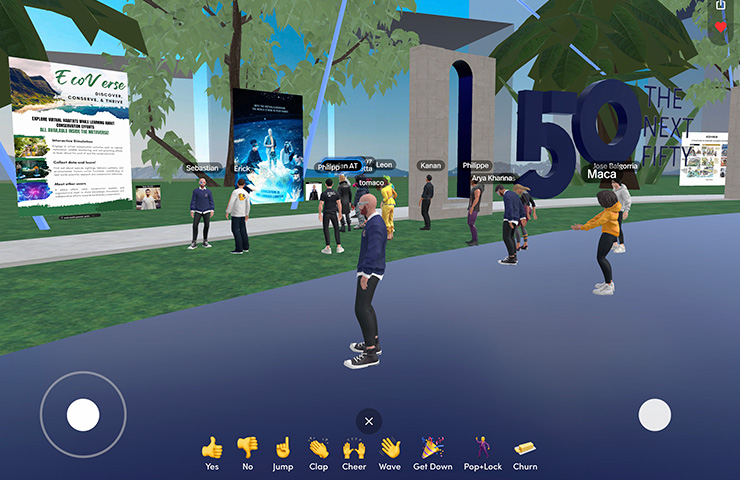
Many of the projects presented by the students as part of the challenge addressed the issue of sustainability in some shape or form.
Sebastien underlines how the metaverse can indeed become a catalyst for a more sustainable future and explains how this must take two different forms. The first concerns how new technologies can help organizations become more sustainable. “For instance, can VR learning replace in-person educational events to reduce the need for travel and have a positive environmental impact?” Secondly and perhaps more crucially, “How can we ensure these innovative technologies are used sustainably?”
By way of example, metaverse technology is helping companies automate their facilities to optimize energy efficiency. Take car manufacturers, for example: “Mercedes Benz gained 20% energy efficiency by digitally twinning their factory floor.”
These connections that make a tangible real-world difference were heavily present in the initiatives devised by the students as part of the IE UN Challenge.
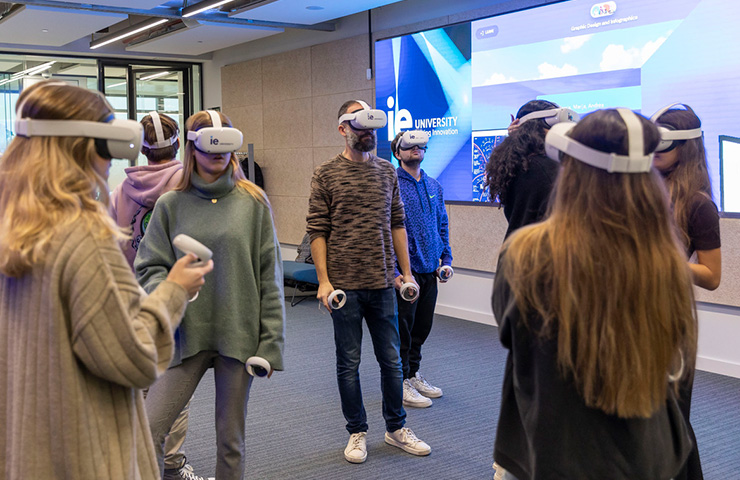
The top five projects related to sustainability included some exciting and innovative proposals:
GreenSea: Metaverse Sustainability by Darcy Arzate
Darcy’s project deals with the GreenSea initiative, which aims to rehabilitate the planet through the use of innovative technologies and the metaverse. She posits that by giving users an opportunity to visualize the impact of investments and explore rehabilitation projects, the initiative will encourage increased investment, understanding and reconnection with nature.
Car-to-Grid Technology for Sustainable Smart Cities in the Metaverse by Leon Benz
Leon’s idea explores the use of AR and VR technologies in visualizing and experiencing Car-to-Grid (C2G) technology within the context of sustainable smart cities as a way to pursue SDG 11, which focuses on sustainable cities and communities. The project proposes the metaverse as a platform to host interactive smart city models with functioning C2G systems in order to foster understanding, acceptance and the adoption of C2G technology. This will ultimately contribute to sustainable urban development and the fight against climate change.
Replantify: A Metaverse Ecosystem Where Users Build and Manage their own Forests by Julia Pereira
Julia’s metaverse-based project focuses on reforestation and the conservation of biodiversity with the intention of creating a virtual ecosystem where users can build and manage their own forests, contribute to reforestation projects through the purchase of NFTs and track the impact of their contributions. It targets SDGs 13, 15 and 17, which work toward climate action, protecting biodiversity and partnerships for sustainable development.
EarthBites: Sustainable Meat and Climate Impact Awareness by Anabelle Kipfer
This idea introduces EarthBites, a metaverse concept aimed at promoting sustainable meat consumption and addressing climate change. Anabelle focuses on achieving SDGs 2, 12 and 13 on zero hunger, responsible consumption and climate action. The initiative includes educational exhibits, alternatives to meat, recipes, seminars, technology showcases and a sustainable agriculture investment hub to raise awareness, educate users and facilitate collaborations to support a more sustainable food system.
De-Litter Earth: An Interactive Educational Game in the Metaverse by Christian Sho-ichi Strahm
Christian’s metaverse-based game aims to raise awareness about environmental issues, in particular, the impact litter has on our planet. De-Litter Earth aligns with SDGs 14 and 15, which focus on life below water and life on land.
The inaugural edition of the IE UN Challenge underlined the value of the university’s commitment to immersive experiences across all its programs. No matter what area our students choose to specialize in, over the coming years, the vast majority will get the chance to witness the power of the metaverse to make a tangible impact on real people’s lives firsthand.






